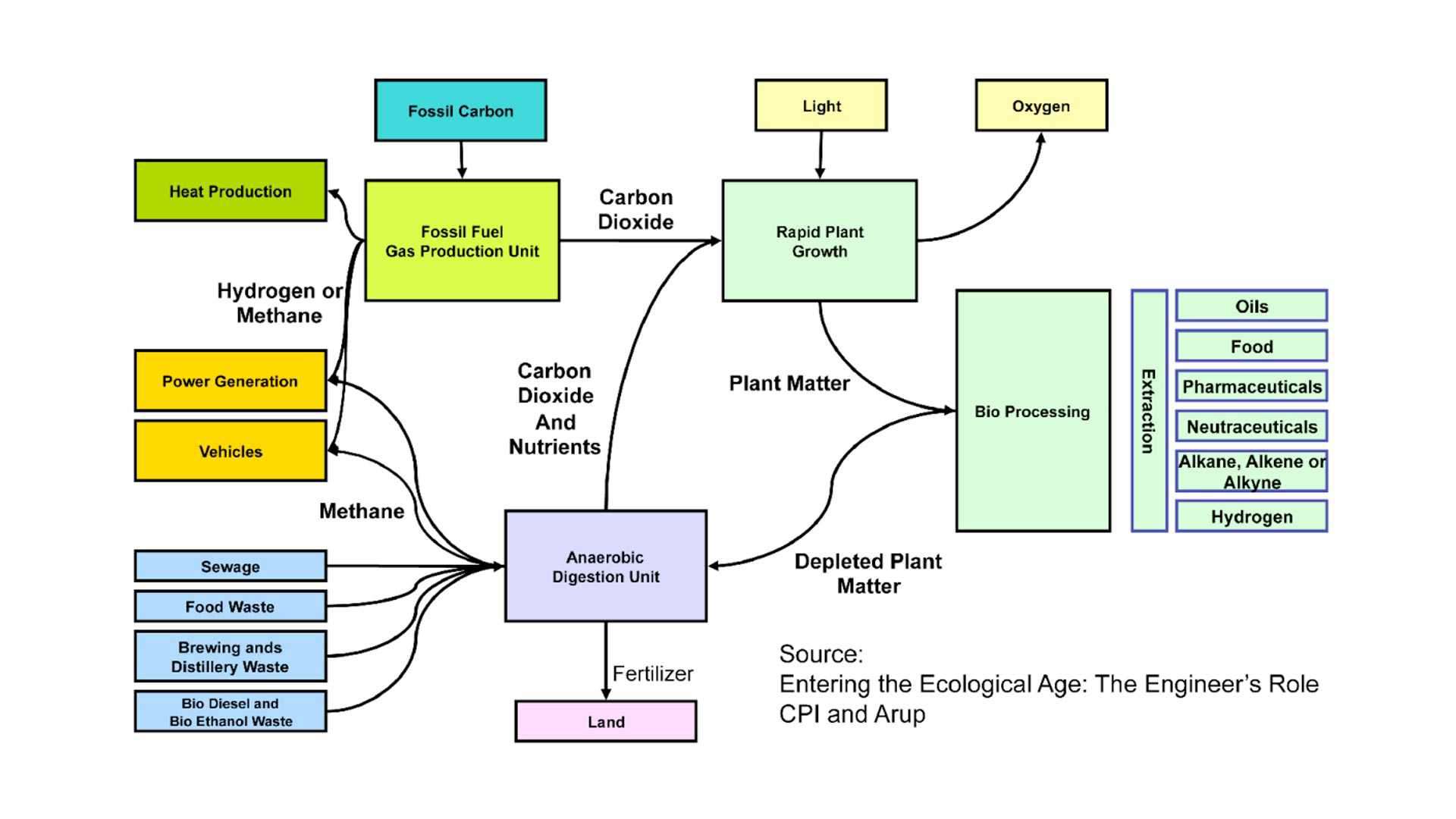
Developing Revenue Streams Through Closed Loop Systems
08 Feb 2012
CPI and Arup, working together, have developed a highly innovative closed-loop process which reduces CO2 emissions and simultaneously creates new revenue streams. CPI is now working on proving the technology and then developing modular formats, allowing it to be deployed on any scale, worldwide.
Arup is a global firm of designers, engineers and business consultants which provides a diverse range of professional services to clients around the world. The firm is the creative and inspirational force behind many of the world’s most innovative and sustainable building, transport and civil engineering projects.
Working together, Arup and CPI have developed a highly innovative closed-loop process which reduces CO2 emissions and simultaneously creates new revenue streams. CPI is now working on proving the technology and then developing modular formats, allowing it to be deployed on any scale, worldwide.
Achievements
CPI and Arup, working together, have developed a highly innovative closed-loop process which reduces CO2 emissions and simultaneously creates new revenue streams. In the process, fast-growing algae is used on site to ‘mop up’ the carbon dioxide created by coal fired power stations and other process plant operators. CO2 is passed through a collection of bioreactors in which light, nutrients and water encourage different types of algae to grow quickly and absorb the carbon. In turn, the algae growth can then be used as a source of revenue: for example, to produce a range of chemical building blocks, oils, pharmaceuticals and foodstuffs.

Once these valuable by-products have been extracted from the algae, the residual biomass can be combined with the organic waste collected from local cities to feed a series of high efficiency anaerobic digesters, producing both methane and compost. CPI is now working on proving the technology and then developing modular formats, allowing it to be deployed on any scale, worldwide.
Benefits
This process will reduce CO2 emissions substantially – for example, CO2 emissions for a city of 1 million people would be reduced from around 8m tonnes per year to around 1m tonnes per year. It will produce the food, fuels and pharmaceuticals the world needs to support its growing population. It could help both developed and developing countries to address CO2 emission targets, simultaneously lifting food productivity. Organisations using the system will generate revenue from sales of compost and other products.
Let’s innovate together
To find out more about how we can work together, please enter your details below.